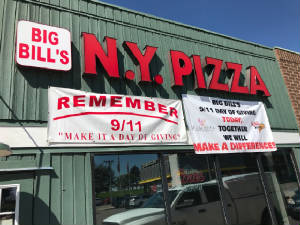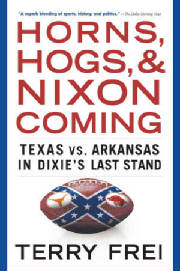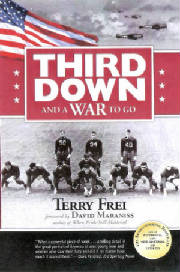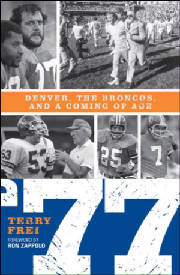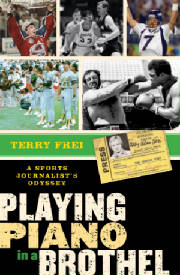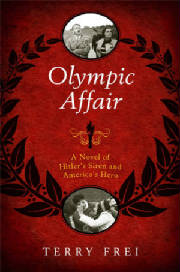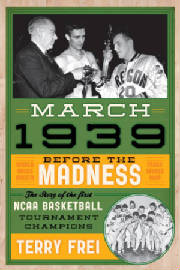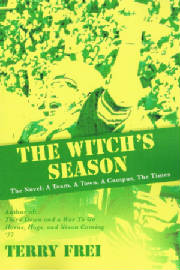| |
November 7, 2022 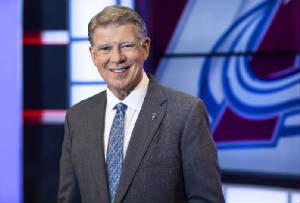 Unfortunately, we had heard this was coming. Peter McNab had suffered a relapse in his
cancer battle. He passed away Sunday and the Colorado sports constituency is in mourning. Though I knew him for 27 years,
dating back to the Avalanche’s first season in Denver, you are now and will be hearing from many who knew him better
than I did. That’s what Peter was. He made friends anywhere and everywhere and the kindly professor teaching hockey
to a generation -- or more about hockey to those who already knew the sport. He was a father. A partner for years with Diane.
A former player. A broadcaster. And so, so much more, all with a self-deprecating sense of humor that constantly left you
laughing and smiling. I covered the NHL during his playing career, too, and was excited to meet him here in Colorado and chat
with him over the years — and then to speak with him for this Mile High Sports interview shortly after public disclosure of his cancer diagnosis in August 2021. I laughed through
much of it and also didn’t even need his frequent friendly admonitions of, “Now, Terry, you can’t use this,
but…” (Truth was, there often was NO way we could use whatever "this" was.) Peter was a hilarious man
with a hockey edge. I hope you read this interview and discover things about this great man you didn’t know. I’m
proud to be the conduit. So long, Maxy. ** Terry Frei: How’d you find out about your United States Hockey Hall of
Fame selection and what was – or is – your reaction? Peter McNab: It was really interesting for me because I was on the selection committee for 12 years.
I don’t think I would have appreciated what a true honor it was to be selected if I hadn’t been on the committee.
I hadn’t been on the committee the last couple of years. I truly did not expect to be selected. It was just this really
cool feeling. The one thing I did learn from being on the selection committee was that they take it very seriously. They’re
not lining up the five best statistical players for that particular year. They really looked at people who contributed in
hockey. That part, more than anything, made me feel really good. I know how hard I worked to pick out the people I picked
out every year. To know that the other selectors had done that through the years, and then to be selected, it was just a tremendous
honor. TF: When did you become a U.S.
citizen? PM: I’m not 100 percent
sure when, but it was back in my Boston days. I think I just wanted to. I’d been here long enough, and I’d lived
in San Diego from the time I was 14. I grew up in a military town. Going from home to my school, we would walk right through
military housing. The Navy and the Marines were there. During my time in San Diego, it was the Vietnam War. I had a lot of
friends from school who ended up going over and not one of them came back the same. They didn’t want to talk about it,
they would never talk about it, and they’d get angry if you pushed them about it. The military part was very real for
me. TF: Your dad, Max, played in the
NHL and was on a Stanley Cup winner at Detroit. He then was a well-known coach and executive in the old Western Hockey League,
when it was a popular West Coast staple of pro minor-league hockey. He went from the Vancouver Canucks to the San Diego Gulls,
which is why you moved to the U.S. when you were 14. Before that, did you have a typical Canadian experience in starting young
and loving hockey? PM: There is no
question there’s this huge line right down the middle of my life when I moved to San Diego. My daughters later would
say, “Dad you really have this unusual outlook on life. You’ve got no discipline.” I’d say, “Yeah,”
because you took a family from a little pulp and paper town outside Vancouver – New Westminster – and dropped
us into Southern California during the ‘60s. The girls didn’t understand it until there was a documentary on Southern
California in the ‘60s, on what was going on and how it was the center of this huge social revolution of sex, drugs
and rock ‘n roll. So, then my dad, who couldn’t be more hockey through and through, comes to me then when I’m
14 and says, “Listen, if we stay here in San Diego, your hockey career is over. I’ve talked to Grandma and Grandpa
and you could go live with them in Chilliwack [B.C.]. Think about that for a couple of weeks.” He fully – fully!
– expects me to say I’ll go back and live with my grandparents and play hockey. Well, I had started to meet some
buddies. They had every sport under the sun. I loved baseball. You could do whatever you wanted. It’s sunny all the
time! I’m 14 and I’m going down to the beach. I’m looking around and asking myself, “Do I really want
to go back and freeze my ass off?” Then two weeks later, my dad takes me in his office and asks if I’d made up
my mind. I said, “Yeah, as a matter of fact, I made up my mind 13 days ago.” So he asked me when I wanted to leave
for Chilliwack. I said, “This is Nirvana, I’m not leaving here. Are you crazy? This is phenomenal.” I can
never forget my dad’s face as I’m saying this. TF: Was there any youth hockey at all? PM: Just enough so I could play. We had 25 or 30 games a year. Our practice arena was at a mall
and the rink was 120 feet by 60 feet. But you know what? I never regretted the decision once. TF: So hockey, baseball and … ? PM: I moved pianos and I would work all the concerts at the San Diego Sports
Arena. I’d be backstage and it was like nothing a little Canadian boy had ever seen before. Janis Joplin was over here,
and Jimi Hendrix was over there. Anything, everything, was fair game. That time, more than any, kind of shaped who I am and
turned out to be. (Laughs.) Unfortunately, as my children would say. TF: You went from there to DU on a combination hockey-baseball scholarship, and you did play rightfield
for the Pioneers for two seasons. Why’d you decide to concentrate on hockey? PM: I truly did love playing baseball, but the hockey part I just liked better.
There were some good things that happened my freshman year. I was more in tune with the hockey players. Plus, I realized in
San Diego that my limitation always was going to be laying off the high heat. When I was in high school, I faced John d’Acquisto
in a regional game – he went on to the big leagues – and I was up five times. I swung 15 times. I missed the ball
15 times. I was a good player, all-league and stuff like that, but I very much knew my limits. There was no way I was going
to go past college in baseball. TF: In
hockey, you were starring for curmudgeonly coach Murray Armstrong and the Pioneers, as part of a legendary eight-man freshman
class. PM: We stuck together. There was
some hockey talent and we won games. It was a really fun, easy time of our life. It would have been impossible to enjoy the
three years more than we did. We could not have had a better time. We didn’t win it, but we went to the NCAA final four
three times. I was getting an opportunity. (Laughs.) We were really good, but the discipline level … well, we were
a little lacking there. We came there in 1970 and we looked around – the fraternity parties, the sorority parties? I
mean, we were right in there. We had track shoes on. TF: The
Sabres drafted you after your sophomore year and you signed after your junior year. And you were with Buffalo for three seasons.
By your third year, your dad was in the NHL, too, as GM of the Capitals. PM: Under no circumstances did I think I was going to be a player in this league. It was a three-line
league. I was the 10th or 11th forward. But I was seeing the NHL. My dad said he thought I could play, but in case I couldn’t,
make a list of things I wanted to do. I wanted to see the Montreal Canadiens’ locker room and some other things, but
my favorite one was I was going to chase Bobby Orr around the net. So, we’re in Boston, we’re getting swamped,
and I’m on the ice and he’s behind the net. I went in behind the net and by the time I turned to come up the ice
Bobby was at the top of the circle. All I see is this big ass, bowlegs, and he’s off. I told myself, “Maxy, remember
that.” He was just magic. TF: After
three seasons in Buffalo, you were traded to Boston. I think it’s fair to say that worked out. In your first six seasons
with the Bruins, the fewest goals you scored was 35. PM: It
was the biggest break of my career. [Sabres GM] Punch Imlach called me in and said, “Listen, you’re not going
to play here. We have a No. 1 center, we have a No. 2, and we have young guys coming in at 3 and 4. I’m going to move
you.” I said, “Okay, that’s nice of you.” [Bruins GM] Harry Sinden calls and asks if I would like
to join the Bruins. Would I? They had everything except a second-line center who could maybe score some goals. I plunked into
this wonderful spot. With great players, great teammates, Hall of Famers, and I had a niche. I could have gone to a lot of
other clubs where I wouldn’t have anything close to the same opportunity. They were just so tough, rough and tumble,
and the fans loved them. Playing in Boston was just the coolest thing. It was fun to be part of a team that the city really
loved. These guys were men. They played like men. And we partied like boys. TF: You played for Don Cherry part of that time. Yet you, mild-mannered Peter McNab, probably are
best known for being among the Bruins who climbed into the stands at Madison Square Garden in 1979 to confront fans. It didn’t
really get out of control, and the worst was Mike Milbury taking off a fan’s shoe and hitting him with it. But it got
a ton of attention. PM: Everything
you saw on the ice was exactly the way that team was. The funniest thing about the deal at Madison Square Garden was Terry
O’Reilly went up first. He was getting kicked at by this guy. I mean, Terry O’Reilly saved my ass so many times.
He said, “Maxy, you can’t fight at all, can you? I’m getting tired of having to worry about you.”
He showed me some of the things to do to protect myself. I was big enough and strong enough, but I couldn’t fight to
save my life. Now in this thing, the guy is kicking at [O’Reilly]. I grabbed this guy and he’s running away and
I’m going, “God, stand up for yourself.” I think it was the 23rd of December of ‘79. We’re in
the locker room talking, we had a late Delta flight back, we’ll go to this bar and we’ll have the Christmas party
the next day. We didn’t even think twice about what had happened! Then all of a sudden after Christmas, it blows up.
They say we have to go to Chicago, and we’re going, “For what?” But that typified that team. One guy was
in trouble and that wasn’t going to be okay. And years later, I was glad that those fans decided they were going to
get out of there in a hurry. We had a couple of guys you didn’t want to turn around to say, “Oh, yeah?”
It would have been a very long night. TF: What
about playing for Don Cherry? PM: I
really enjoyed it. The most underrated ability Grapes had was five minutes into the game, he knew exactly who was playing
well, who we should go to with the extra minutes in that game. He had great bench management. He coached veteran players really
well and it was a veteran club. He had the ability to know how to stretch a 3- or 4-game winning streak to 7, 8 or 9, but
he could instinctively pick the game we were going to go south. Then he would have a field day with it. For that group at
that time, I don’t think they could have had a better coach. TF: You moved to finish up at Vancouver and New Jersey. And by then, your dad was the Devils’
GM. PM: There’s two sides to
it. I wouldn’t suggest it to anybody. If I’d been more in the wheelhouse of my career, it might have been different.
But I was getting older. Being the general manager’s son, there were some trying times. The guys weren’t thrilled
with it. On the other side of it, I met these young players coming into the league – Kirk Muller, Ken Daneyko, John
MacLean –who became my life-long friends. And I was able to get into the broadcasting end of it when Dr. [John] McMullen
[Devils owner] asked me if I’d like to do it. TF: How’d
that come about? PM: He and my dad
were really good friends. He asked me what I’d like to do next. I had watched my dad be in management. It’s a
tough life and I wasn’t sure I wanted to do that. I couldn’t coach because I could never tell a player what to
do. That’s just not my nature. Dr. McMullen said, “Listen, we’re going from 12 games to 60 on SportsChannel,
would you like to do that?” I said, “That sounds more like what I’d like to do.” My first partner
is Gary Thorne. My second partner is Mike Emrick. Talk about getting carried by Hall of Fame broadcasters. TF: You had some ties to Denver and came back to do the Avalanche broadcasts
from Day 1, beginning in 1995. We’re fast-forwarding through 26 years, but what were the highlights for you? PM: Obviously, the two Cups were so cool. The first
year, there was no way on God’s green earth that you thought they were going to win. They thought they were good, but
Detroit had 132 points. That first year, they were so much fun to watch. There were nights when the other team simply didn’t
touch the puck. Once Patrick came in, the goaltending was A-1. Then Pierre Lacroix traded Owen Nolan, a superstar, for this
defenseman, Sandis Ozolinsh, nobody’s ever heard of. He was the catalyst to their offensive game. And the city was just
on fire. That first parade, I’ll never forget. TF: And
from there? PM: That first team was great
for quite a while. There were phenomenal hockey games. The rivalry with Detroit. I played in some rivalries that were intense,
but nothing like that. The thing that separated Detroit-Colorado from the rest was the skill level of both teams. The way
the games were played, the intensity. Guys would come in saying they get it, but you talk to them after the game and they
say, “—-, you have to watch yourself in warmup!” But you win a Cup, and then you have a 5- or 6-year run
with that rivalry and hockey’s here, it’s cemented into the fabric of the community. We’re a hockey city
now. It’s been great to be a small part of it. We’ve got great youth hockey. Everybody knows who the Avalanche
are. Plus, over time, for me personally, I’ve always enjoyed watching players develop. TF: Now we come to your current fight, which began with your diagnosis in August.
Out of respect for you and your privacy, we won’t go into all the specifics. But how did you find out you had cancer
and what was your reaction? PM: I
told the doctor he had the wrong diagnosis, to go back and get another sheet. (Laughs) No, I assume it’s like this for
everyone else. It’s the most shocking, frightening, terrifying word that you’ve ever heard. At that moment, you
just feel so completely alone with this feeling you never thought you were going to feel. It’s impossible to describe
but I’m finding out in talking to others who have gone through it, it’s the same feeling everyone has initially.
You think cancer and right up glued to it comes death. When I was a kid, that was it. Then you start looking at the different
situations and treatments and whatever. But the worst was telling Diane [long-time partner Diane Wenner] and my daughters
[Shanon and Robyn]. Nobody had any idea. It wasn’t like I was sick. Pete’s got, and dad’s got, cancer. They’ve
been great, but there were a tough first couple of hours of trying to digest the whole thing. TF: You’re going to continue to work, though? PM: Yes. My hair’s gone, so it’s going to be pretty obvious. I’m
lucky enough that I have some really good friends I’ve had for a long time. There’s no bull. Each of these guys
who have been through this say, “Maxy, if you can keep going, keep going because your mind stays.” If you’re
kind of alone, you can start to move towards the bad mentally. My daughter’s heading back to Thailand and will be there
for two years. Am I going to see her again? Stuff like that. They said if you can keep your mind going and be positive, give
it a shot. But we’ll see. If at some point it’s obvious it’s become, “Oh, my God, it’s embarrassing
to watch,” then of course you change. I’m going to give it my full effort. Altitude’s been fantastic. We’ll
just see how it goes. TF: This
is a statement, not a question. We’re all with you and you’re going to kick cancer’s ass. PM: Thank you very much. If it comes down to having good wishes and best wishes
from a lot of people, I have a good start. Stick Taps for Peter. Here's how the interview originally appeared on the Mile High Sports web site and in MHS
Magazine in October 2021.
|
|


